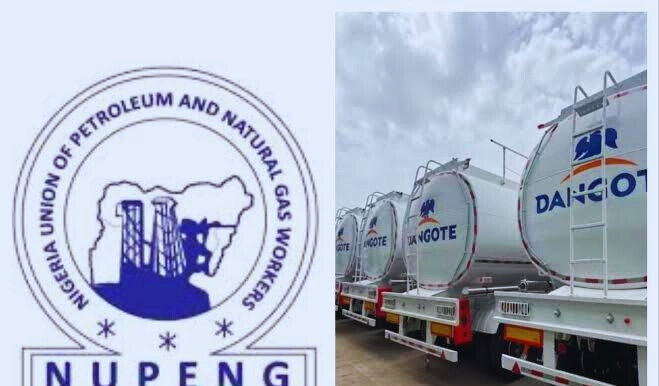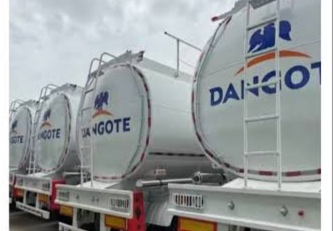Labour tensions deepened on Monday as major oil and gas unions rallied behind the Nigeria Union of Petroleum and Natural Gas Workers in its confrontation with the management of the Dangote Refinery. The Petroleum and Natural Gas Senior Staff Association of Nigeria and the Trade Union Congress both declared total support, warning that they are prepared to escalate the dispute if the company fails to respect workers’ rights.
The crisis began after NUPENG accused the Dangote Group of blocking newly recruited compressed natural gas tanker drivers from joining recognised labour unions. According to the union, the company imported thousands of trucks and employed drivers but refused to allow them union representation, describing the move as an attack on freedom of association.
PENGASSAN, through its general secretary Lumumba Okugbawa, echoed the allegation and warned that unless the refinery reversed its position, it would have no choice but to mobilise senior staff to join a shutdown of operations. The association argued that the management’s stance amounted to union-busting and violated long-standing labour rights in Nigeria.
The Trade Union Congress also released a strongly worded statement signed by its president and general secretary. The organisation condemned what it called the exploitation of Nigerian workers in their own country, stressing that it would not stand by while Dangote and its subsidiaries allegedly suppress labour freedoms. The TUC threatened a nationwide solidarity action should the dispute remain unresolved.
The growing dispute prompted urgent intervention from the Federal Ministry of Labour and Employment. Minister Mohammed Dingyadi and Minister of State Nkiruka Onyejeocha convened an emergency meeting in Abuja on Monday. At the table were the national executives of NUPENG, representatives of the Nigeria Labour Congress, officials of the Trade Union Congress, executives of the Dangote Group, MRS Petroleum, and regulatory officials from the Nigerian Midstream and Downstream Petroleum Regulatory Authority.
Union leaders attending the meeting insisted that allowing workers to freely associate is a fundamental right that cannot be negotiated. They argued that the actions of the refinery, Africa’s largest single-train facility, could set a dangerous precedent for other companies if left unchecked. For them, the issue is not only about the welfare of drivers but about the dignity of Nigerian labour as a whole.
The standoff has generated widespread attention, given the central role of the Dangote Refinery in Nigeria’s energy sector and the potential national consequences of an extended industrial shutdown. Analysts warn that any disruption could impact supply chains at a time when the country is already grappling with high fuel costs and unstable distribution.
As discussions continue behind closed doors, the outcome will determine whether compromise is reached or whether Nigeria faces a wider industrial action that could paralyse its petroleum distribution system. For many observers, the episode underscores the fragile balance between foreign investment, corporate power, and workers’ rights in Africa’s largest economy.

